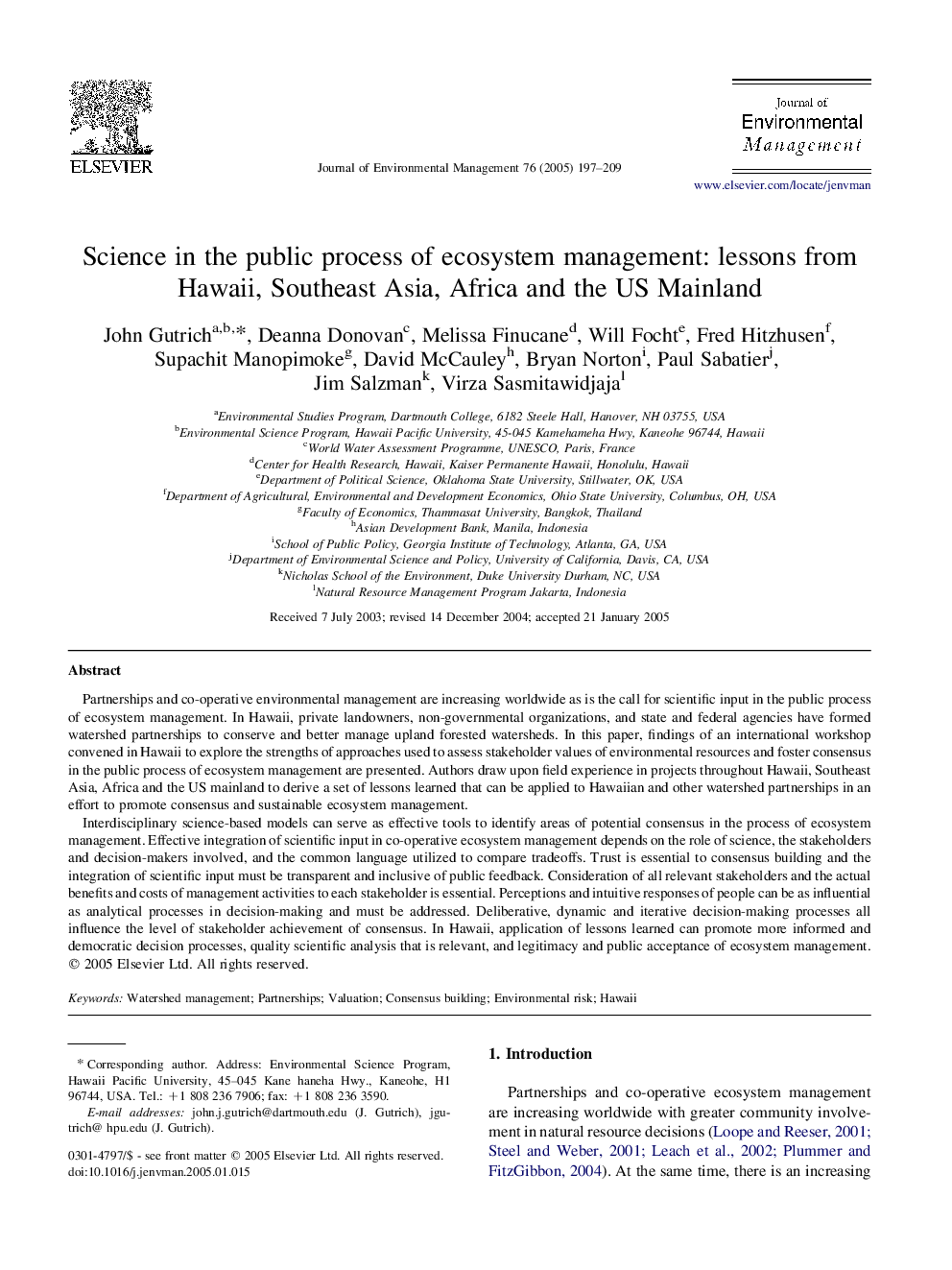| Article ID | Journal | Published Year | Pages | File Type |
|---|---|---|---|---|
| 10505826 | Journal of Environmental Management | 2005 | 13 Pages |
Abstract
Interdisciplinary science-based models can serve as effective tools to identify areas of potential consensus in the process of ecosystem management. Effective integration of scientific input in co-operative ecosystem management depends on the role of science, the stakeholders and decision-makers involved, and the common language utilized to compare tradeoffs. Trust is essential to consensus building and the integration of scientific input must be transparent and inclusive of public feedback. Consideration of all relevant stakeholders and the actual benefits and costs of management activities to each stakeholder is essential. Perceptions and intuitive responses of people can be as influential as analytical processes in decision-making and must be addressed. Deliberative, dynamic and iterative decision-making processes all influence the level of stakeholder achievement of consensus. In Hawaii, application of lessons learned can promote more informed and democratic decision processes, quality scientific analysis that is relevant, and legitimacy and public acceptance of ecosystem management.
Related Topics
Physical Sciences and Engineering
Energy
Renewable Energy, Sustainability and the Environment
Authors
John Gutrich, Deanna Donovan, Melissa Finucane, Will Focht, Fred Hitzhusen, Supachit Manopimoke, David McCauley, Bryan Norton, Paul Sabatier, Jim Salzman, Virza Sasmitawidjaja,
